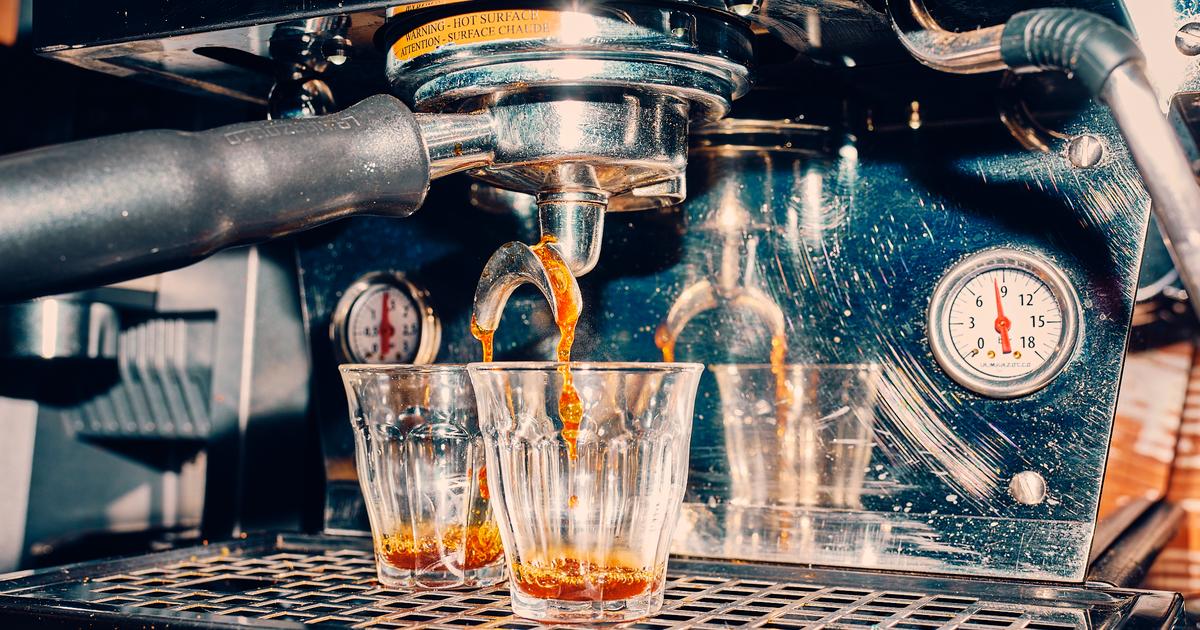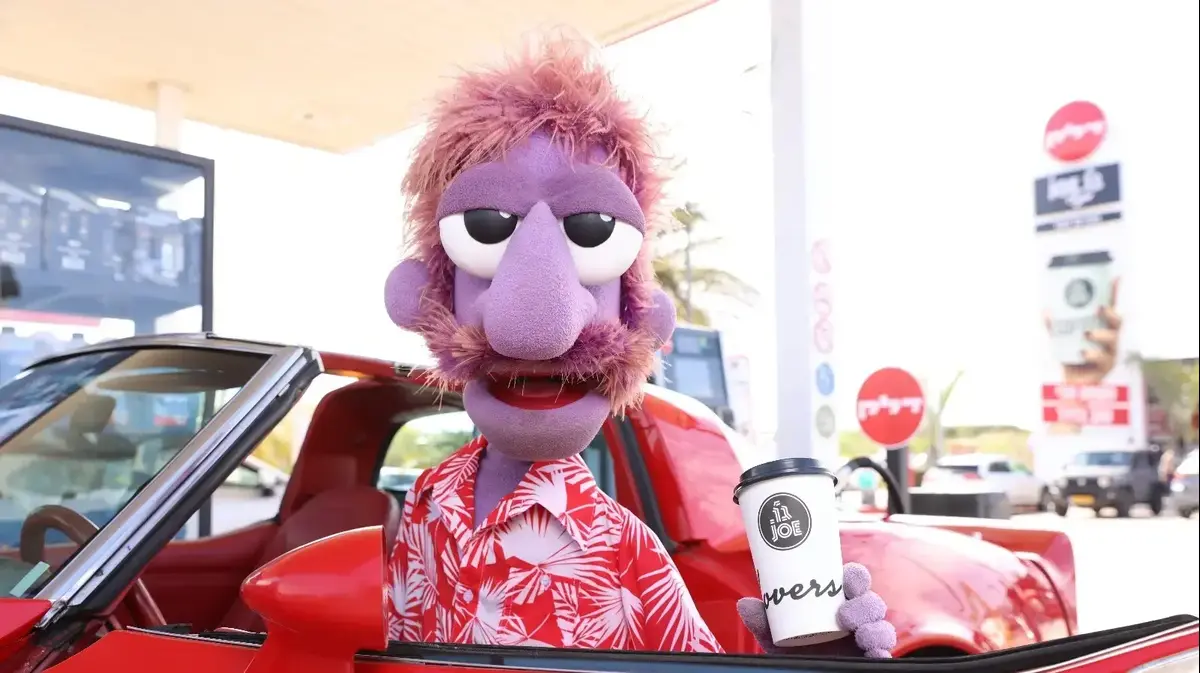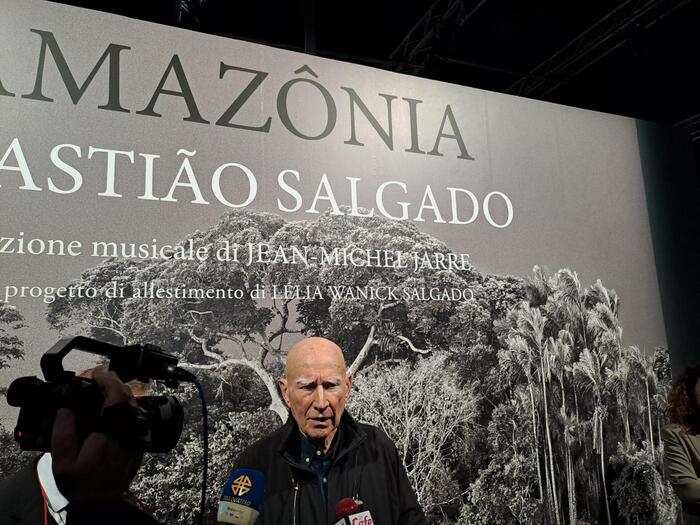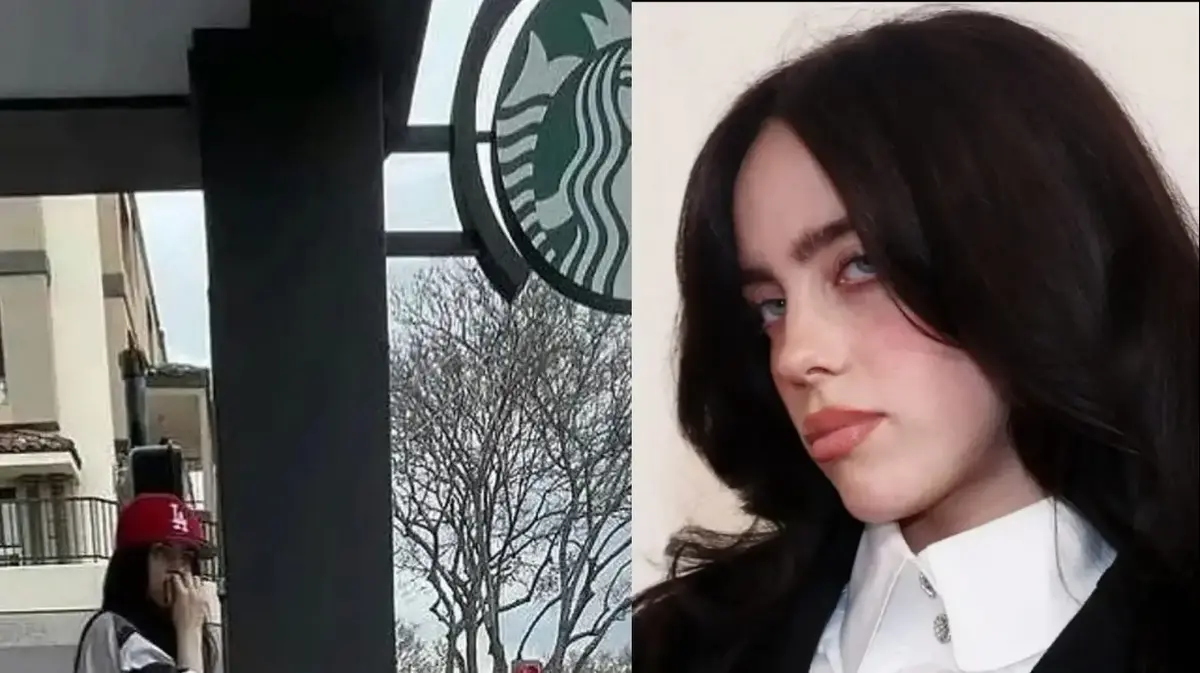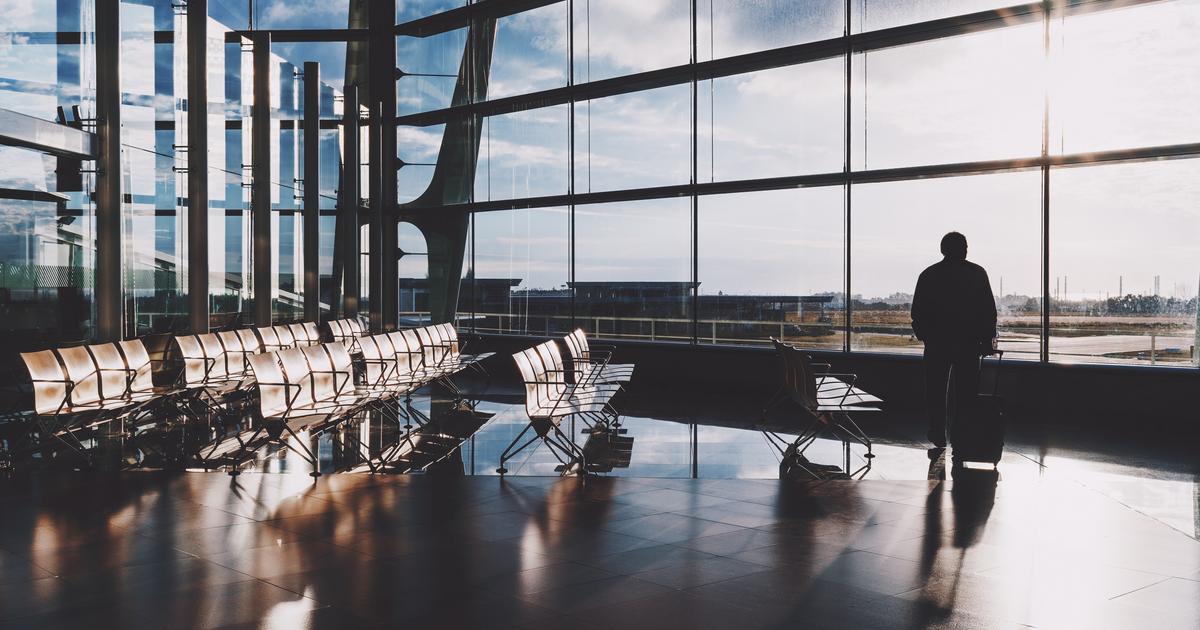"A desert road leads from Vegas to nowhere, a better place than where you've been. Coffee machine needs fixing, little coffee shop, around the turn, I'm calling you, do you hear?"
Sometimes movies are just a reason for a theme song.
It happened sometime in the late 80s.
The plot was as weak as the fumes of the broken coffee machine.
A great couple in the middle of the road.
The car is driving.
A German tourist is left alone in the middle of nowhere, changing the life of a deserter in a remote cafe.
"Desert Flower" Hollywood Style.
It wasn't invented there, but "Baghdad Coffee" - the film, and especially the theme song - rebranded the affinity between roads, distances, sensual wilderness and the passion for road coffee.
When Meir Ariel went looking for his coffee in Baghdad, he found it in Yeruham.
Practical and Israeli, Ariel told Tomo that "the whole point is to drink something cold in the heart of the desert."
It makes sense on the whole - a cold drink under the desert sun is without a shadow of a doubt a trophy of victory in the duel between man and the desert.
After the electricity arrived and the housing was built, the refrigerators and air conditioners arrived.
The cold drink cooled the drink, but after that the need for a cafe grew.
Not as a victory image for the flowering of the wilderness, but a cafe as a symbol of the afterlife.
A place to talk, meet, get excited, reflect, get to know each other and indulge in the next cup.
A cafe as a space where the meaning of life emerges between the bitter and the sweet, between the available and the casual and the time that slips away like smoke through the steam.
Today, when the city contains dozens of options for "neighborhood" cafes where you go down in your pajamas and with a laptop, it's hard to understand what it's like to live in a settlement with one cafe, or the life of the slums of the past, where coffee was "entertainment", an event for which you dress up and show off nicely, Arm in arm they set out to find the heart of the Shabbat.
In order to preserve and tell the story that calls to us, before it disappears completely, and to wonder what new story was created in its place, I set out on a southern journey between mythological cafes and those that create a new vapor mythology.
Cornelius Farm: Kafka Cafe
"I never thought this would be what we would do," smiles Daniel Kornmel and points to the multitude of tables spread out down the bald hill of Tarshim.
It is not possible to find a free table under the big grill.
The place was crowded with the people of Israel and Tapu, who stopped a little after Talalim junction on the way south to drink and eat at the Kornmel farm.
"We came to this mountain 25 years ago to live alone on isolated farms, raise goats, make cheese. But over time we thought it would be right to give people ideas of what to do with goat cheese. 12 years ago we opened the cafe and the road restaurant, and the menu is based mostly entirely on our cheeses Even our reverse is made with goat's milk."
"I came here for the peace."
Daniel Cornel, photo: David Peretz
I don't know if it's the coffee beans or the goat's milk that make the difference, but Cornel serves me an excellent, soft and full of fancy flavored reverse coffee that stands in stark contrast to the wild scenery on all sides.
It turns out that in goat's milk the size of the fat globules is smaller and they are easy to digest.
The protein that causes allergy in cow's milk is also not found in goat's milk.
All around, platters of cheeses to be tasted and pizzas come out of the kitchen to the cheers of the diners.
I taste the "Hagar Special", a circle of cheese with an intense flavor and surprisingly lightness, and fantasize that this is a tribute to the mythological neighbor from Beer Sheva, the Hagar, Avraham's mistress and Ishmael's mother.
Kornmel is amused: "Cheeses are always named after this or that girl, and I thought it would be right to name them after the producers, and Hagar is a goat here on the farm."
So you are the neighborhood cafe of the area?
"We are open from Tuesday to Saturday between 10:00 a.m. and 5:30 p.m., and most of our customers are those who are traveling in the area or passing by on their way to Eilat. Many come here from Beer Sheva, but somehow a little less from the immediate area. The mentality is that of a rural settlement. It's perfectly fine As far as I'm concerned, I also came here for the peace."
I wonder why the place doesn't expand beyond the trailer, and discover that the cafe hides a Kafkaesque story.
It's been a quarter of a century that the Cornelians have been living in trailers and can't build a permanent home.
The authorities have not yet regulated the status of the agricultural farms, and their people are still waiting for the redemption of a brave master plan that will allow them to regulate their lives, get out of the trailers, build permanent homes and expand the purpose of the individual farms to what some of them do anyway - tourism.
So if you are annoyed that you have to wait in line for a free table, now you know who is to blame.
Canaan, Sde Boker: southern boutique atmosphere
There is the South, there is the Negev, and there is the Ben-Gurion midrash.
A few meters from the cliff stand native reindeer looking at the shopping center as if debating whether to enter.
The edge of the sidewalk was painted in economic blue and white, a testament to the status of the midrash as a sought-after, fashionable, and prestigious real estate gem. Between the clinic and the high school for environmental education is the local shopping center, a minimarket, an ice cream parlor that serves couscous on Tuesdays, and the midrash's cafe-deli, which they heard went far and wide - "Kananiyya ".
They are not trying to compete with "Aroma".
Yuval in Canaan, photo: David Peretz
Early morning, and the place was crowded.
Some soldiers are debating which unique cheeses will fit into the sandwich.
A female student with slanted eyes is reading a thick research book.
A local MP shares a quinoa salad and discusses the differences between oat milk and almond milk.
With blue hair and a blinding amount of magnetometer piercings, Yuval the AHMS Shit from Sedeh Resources makes the staff tick. Everything fits in with the boutique atmosphere that the place exudes.
The coffee is good, the pastries are better, and the sandwiches in general.
But that's the thing - it's not really a choice here.
This is the only cafe for all residents of the midrash.
The opening hours are "more or less" between 8:00 a.m. and 3:00 p.m., and I wonder what it's like to live in a locality whose entire selection is one and only one coffee shop, which is only open when it suits the owners of the place.
"Really? It's a pleasure! We won," answers Nurit Guy, a midrash resident who is sitting typing on the computer.
"But note that 'Kananieh' is not the only cafe around, the question is what you define as your environment. For us field resources it is 20 minutes, Yeruham 20 minutes. Our environment is like the environment in the center. But for the residents of the midrash, 'Kananieh' is Our cafe, and we made a profit, because in the end it's an excellent cafe."
The place closes at three. Don't you miss sitting in a cafe in the evening?
"True, it's uncomfortable and sometimes a bit annoying," Norit giggles, "at four, everyone takes the children out of the preschools, and when it's nice outside, we meet at the playground, and what's more fun than doing it with hot or cold coffee next to you? But the place closes at three because Gilad and Maria also , the owner, has children and they want to be with them. So we accept it with great love. As someone who was involved in tourism in the past, I know that financially it is not a 'logical' conduct, to close on Sunday when all the people return from Eilat. But that's the thing in the south: the whole story of the pursuit of The money and enough and enough - there is no such thing here."
Black coffee, photo: Regev Kalaf
Another resident of the madrassa clarifies: "Places like 'Kananiyeh' do not compete with 'Aroma' nor do they try to. You have to know how to manage a place, persevere, stick to a business plan, know who your audience is, and it's not just tourists, choose an excellent playlist. They are one of the strengths The only ones in the area who provide employment and a fair wage to the young people who work for them. It is very important to me, to be a decent business."
Independence Cafe, Dimona: It's not a business, it's a family
When the day comes and a time machine is invented, it is likely that at first it will only be able to move us back for a few seconds.
And that's exactly the time needed to return to the moment when I noticed the sign that promises "cold hearted" in the middle of the desert.
But until the message sank into the stomach and crawled slowly to the foot on the pedal, the head realized that I passed the place and the next turn in 100 kilometers.
A moment's hesitation - and I was left with the eternal questioning of what the sign "Patriot? Come in for coffee!" meant.
Has a new breed of kidney and loyalty polygraph polygraphs been discovered?
Or is this sophisticated election propaganda?
Next time I pass there I might find out the answer.
"Riders in the storm, riders in the storm, into this house they were born and into the world they were thrown, like a dog without a bone and a player on loan", how discouraging it is to hear Jim Morrison sing about the riders in the storm when you are stuck in a traffic jam at the edge of the prairie for miles.
And if that's not enough, a new genre of Israeli bravado is emerging - bypassing traffic jams on the right.
"Brother, can we come in? Oh, I didn't know there was a traffic jam, I thought they were giving out free coffee or something for the holiday..." Reliability level: snow in the prairie.
Dimona emerges in stages from the desert, textile and quarry factories, electricity fields and a new villa neighborhood with an atomic view.
All the veterans of the settlement referred me again and again to the "Independence Cafe" as the mythical place where the residents of Dimona used to sit.
The shopping center is shaded from the sun, the walk along it is pleasant, but its future is deep in its past.
"DVD movies on sale for Black Friday," announces a sign in the CD store.
What is ridiculous at the moment will still become fashionable retro.
You just need patience to survive the intervening years.
"On Saturday night you couldn't pass outside here. People would stand for hours to sit, they would fight for places, and today..." - Danny Bor looks from his height on the shopping center and remains silent.
His grandmother made him his first espresso in the second grade.
At the age of 11 Bor already came back from school straight to the cafe to be a waiter and give his parents some time to rest.
Throughout our conversation Bor manipulates the coffee naturally: prepares, serves, talks to this or that table and returns to the interview.
No doubt, Bor is a coffee boy who grew up to run the oldest coffee shop in town.
In 1967 Eliezer Bor came from Netanya to live near his sister.
After years of serving as a cook on merchant ships that sailed all over the world, Bor looked for stable land and found it in Dimona.
Together with him he brought all the secrets of baking and confectionery that he learned in his travels.
His wife, Rachel, recalls: "To this day, people meet me and ask when we will make our cakes? Every now and then, people come in, demons who come from Los Angeles, and what do they ask me? Rachel - Where is the millefeuille? Where is the Schnitt cream? Where is Sabrina? No, no There were cakes like ours."
And is there a chance they will return?
Bor sighed: "Since father passed away 13 years ago, we stopped with the cakes. Listen, I think about it all the time, but it's not easy. Today the world is different."
What happened? What changed?
Rachel: "There used to be meetings here, families would come in the morning, at noon, in the evening there would be dates, people would go out and sit here. There were few things but there was a lot of life. They brought Portuguese people here to build the reactor, there was music at night. We would go see the 'Geshesh' up here, singers from Tel Aviv would come to hang out in Dimona or stop on the way to Eilat to drink coffee here. But people left, some passed away. And in general, the world changed when the video came. From that moment everyone just wanted to be alone with the devices. Alone at home with the video and the television , and now alone everywhere. You with this phone of yours... what can I tell you, destroy the world this device."
And what kind of music would you put in the background then - French, like a Parisian cafe like this?
Rachel Mashtea: "Music? We wouldn't play music! Who needs music?! People came to talk, there was such a noise from the talks that it wasn't needed."
Today "Cafe Atzumat" mainly serves coffee, cigarette smoke and "wiener" cakes.
Bor prepares me a long espresso, and I'm a little afraid that it will be more history than hysteria, but I get a particularly successful espresso - bitter and evoking like good memories, burning like a desert, sweet like the beginning of an evening full of promises.
"People used to fight over places here."
Danny Bor at the cafe in Dimona, photo: David Peretz
"Today, coffee has become a complete Torah, but after all the discussions about coffee beans from here or there and which coffee machine, in the end it's always the hand on the machine that makes the difference. It's not 'aroma', every day someone else makes your coffee. It's always us who prepares Here's the same coffee, exactly the way I make it every day. I know the customers, I don't even need to be told what they want. I know which coffee to put on which table for which customer, two minutes before he even arrives. It's a life's work. There was a time when my father rented the place - I couldn't come near here, I didn't pass around here, seeing your place with others was difficult. And when the contract ended, I immediately returned the place to our family. It's not just a business, it's a family, it's generations..."
And your children work here?
"They left for Tel Aviv, but every now and then they say to me: 'Dad, let's open a cafe in Tel Aviv.'"
Why has the attitude towards the cafes of the past changed?
"Listen, people no longer enter the center. They move with cars, they don't pass through here anymore. And open another mall and another mall, and all the chains come and open branches, and more places and more places, and every place that opens gives you another table. I have my customers, But when they opened the coffee chain for five shekels, I had customers who left for five shekels, but this is a passing trend.
"I generally like the streets. When you travel abroad do you go to malls?
It always looks the same.
I go to the markets and the streets.
That's where life is.
"I'm 53 years old, I know both worlds - both the world that was, and the new world with the phones and all that. And what can I tell you? I prefer that world, it was more stable. It's not like today: you come to a place and there's a store A 'pop-up' for a month, and hello and goodbye. When you come to a cafe like 'Hatzamtu', you come once for the coffee, and a second time for the conversation, the atmosphere and the memories that this place contains. There are customers here who sit with me for four hours over one coffee and I accept it with love, It's part of the place and the atmosphere. There's a lot of emotion to this place, and that's what I miss," Bor sinks into the curtains for a moment.
"You know, now that I think about it, maybe you should really return the cakes...".
Rosalin, Beer Sheva: coffee and love
How long?
"37 years together, 26 of them married."
And all these years you work together in Rosaline?
"Yes," says Yael firmly.
"I'll reveal a secret - when she makes comments to me, I just stay silent. And we move on," says Yehuda.
"And we don't continue it at home," Yael completes his words, "and we don't continue the house here. And that's fine and it passes," Yehuda continues, and it just doesn't end.
From 8 in the morning until nightfall.
Welcome to the pairing show of Yehuda and Yael Gabbai, the living soul and the owners of the cafe and patisserie "Rosaline" in the old city of Be'er Sheva.
Within the work you also need the soul.
Yehuda and Yael at Cafe Rosalin,
The beginning was in the previous generation: Roja managed a metal factory, Elin managed accounts, and when they retired in 1980 they established a confectionery of love with their unified name - Rosalin.
Their daughter Yael grew up in the patisserie, and when Yehuda met her he was drawn to the Rosalin family, and since then they both work in the small patisserie.
Yael bakes the famous cakes of the place, and Yehuda serves and makes the customers laugh.
How do you deal with a constantly changing world?
"It's very simple, we don't change anything," says Yehuda.
"For better or for worse," continues Yael, "people want soy milk, are aware of sugar and want coffee like this."
"But we don't change anything," Yehuda repeats, "and that's why people who come here know that they will get exactly what they know. Someone came in this week after 20 years of not being in Israel and said, 'This is unbelievable, it tastes the same as I remembered!'
How do you like your coffee?, Photo: Getty Images
It's no coincidence that Rosaline's Sabrina stars.
Like Hapoel Beer Sheva, the Negev Brigade Memorial or Rubik Danilovich, Rosalin's Sabrina is a southern institution near the coffee shop, so familiar and familiar that it is hard to imagine the south without it.
Addicts come to Sabrina not only from Netanya, Jerusalem and the Arabah.
The Rosalines are proud of her and the cakes.
"Come today, tomorrow, or 20 years ago - it's exactly the same."
Some will say it as a criticism.
"Listen, Sabrina is Sabrina. We won't make it out of tofu or with another cream, or without sugar. It is what it is, you have to respect the tradition of the thing. If you want, go somewhere else, there's room for everyone."
And don't you get bored doing the same thing over and over and over again?
Yael: "I do a lot of other things so I don't get bored - I'm a naturopath, a Chinese acupuncturist, and I studied guiding trips abroad." "In a week, Yael will be a guide in Italy and I'll be a guide in Morocco, at the same time," continues Yehuda.
And who will make Sabrina and serve coffee?
They both chuckle: "Once every three months we close and go abroad for ten days.
You can't work endlessly, but you need our soul."
And will your children continue with you?
"We hope not," the two say in unison, and Yael continues: "We knew what kind of servitude we were getting into, I don't want them to choose that. Our children are in high-tech and management and they are making excellent money. I stood here and made cakes three days after the birth. This is not the life I I want to build my own."
And you didn't think to expand - to bring employees to work in your place, to grow, branches?
Yael: "It's not us. Here I know what the product is that I'm putting out, there I don't know who makes it and how. And what do I need someone to tell me that it doesn't taste as good there as mine? It doesn't interest us."
Yehuda: "A person should know how to enjoy what he has. That's why we don't go looking for all kinds of rare coffee bean blends. It might appeal to one or two, but most people don't want that. And you know what - next to the espresso machine I keep Also the best instant coffee ever."
were we wrong
We will fix it!
If you found an error in the article, we would appreciate it if you shared it with us

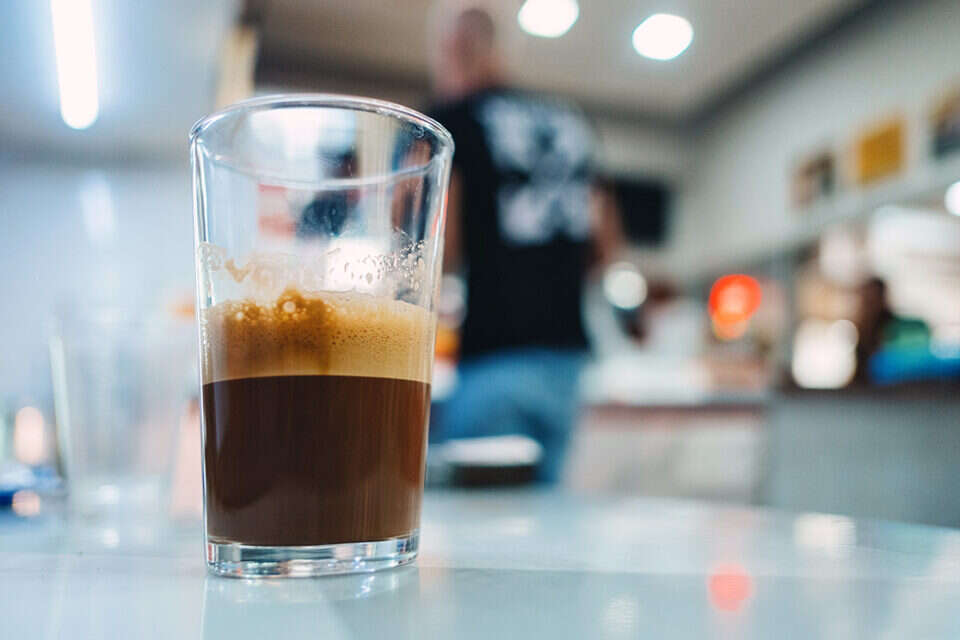
/cloudfront-eu-central-1.images.arcpublishing.com/prisa/3JJD4TKINZEPFLXDOCJAQFGKXE.jpg)

